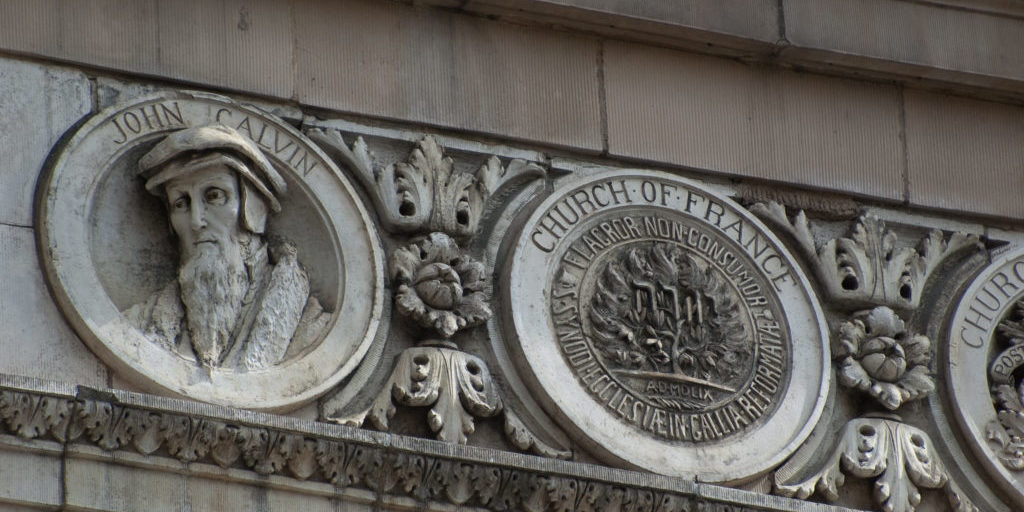
Reformation Book Recommendations-part 3 (Matthew Barrett)
So you’ve read some secondary sources and you are itching to read the Reformers themselves. Where should you begin? Who should you read? Here are some of my recommendations to get you started.
 Martin Luther. Career of the Reformer. Volume 31, Volume 32, and Volume 33
Martin Luther. Career of the Reformer. Volume 31, Volume 32, and Volume 33of Luther’s Works. Philadelphia: Fortress Press, 1957.
It is hard to go wrong with any book by Luther. Wherever you begin you will get a taste for this colossal theologian. But I would send you to these three volumes to start.
In vol. 31 you will find the Heidelberg Disputation (1518), the 95 Theses, the Proceedings at Augsburg (1518), Two Kinds of Righteousness (1519), the Leipzig Debate (1519), The Freedom of a Christian (1520), and Why the Books of the Pope and His Disciples Were Burned by Doctor Martin Luther (1520). This first volume is especially important because it introduces you to those key events that ignited the Reformation.
Vol. 32 covers Luther at the Diet of Worms 1521, among other works. But perhaps the book I would recommend more than any other is vol. 33, Luther’s The Bondage of the Will. At the end of his life Luther said that all of his writings could be forgotten, but if there was one book worth reading it was this one. Here you will discover his debate with Erasmus where Luther, in contrast to certain medieval semi-Pelagians, argues for the necessity of sovereign grace in light of man’s spiritual inability. I would also recommend the Banner of Truth edition simply because it is introduced by J. I. Packer, an introduction worth the price of the book itself.
 John Calvin. Bondage and Liberation of the Will, The: A Defence of the Orthodox Doctrine of Human Choice against Pighius (Texts and Studies in Reformation and Post-Reformation Thought). Grand Rapids, Baker Academic, 2002.
John Calvin. Bondage and Liberation of the Will, The: A Defence of the Orthodox Doctrine of Human Choice against Pighius (Texts and Studies in Reformation and Post-Reformation Thought). Grand Rapids, Baker Academic, 2002.
Since we mentioned Luther’s The Bondage of the Will, we must also put Calvin’s volume on the same topic on our reading list. While Luther battled Erasmus, Calvin battled Pighius. Here we see Calvin’s genius as a theologian. Calvin brings into the discussion important theological distinctions, such as the difference between compulsion and necessity. Calvin’s treatise is vigorous, unrelenting, and powerful in its argument. There are few like it. I would also suggest reading A.N.S. Lane’s Introduction to Calvin’s treatise to understand the historical background.
 Martin Luther. Three Treatises. Philadelphia: Fortress Press, 1990.
Martin Luther. Three Treatises. Philadelphia: Fortress Press, 1990.
Back to Luther for a second. Fortress Press has put together three of Luther’s most important works of 1520 in a single volume. These works include: To the Christian Nobility of the German Nation, The Babylonian Captivity of the Church, and The Freedom of a Christian. Here we find Luther’s theology beginning to develop on issues such as biblical authority, the sacrificial system, and justification by faith as he progresses towards the Diet of Worms. These three works are taken from the American edition of Luther’s Works.
 John Calvin. Institutes of the Christian Religion. Louisville: Westminster John Knox, 1960.
John Calvin. Institutes of the Christian Religion. Louisville: Westminster John Knox, 1960.
Now back to Calvin. Calvin’s Institutes, in my estimation, may be the most important theological work of the sixteenth century. Some would argue that it is the most important theological work of all time. In many ways, Calvin systematized Luther’s theology. Yes, Luther and Calvin’s theology differed in certain respects (e.g., Lord’s Supper). However, they were in agreement on those doctrines so central to the Reformation. What sets Calvin apart from Luther, however, is his ability to structure Reformation theology holistically and systematically. What started as a simple and short guide to the Christian faith turned into a masterful apologetic for Protestant-Reformed orthodoxy. And do not be intimidated by its size. Calvin’s theology is warm, pastoral, and convicting. Calvin, like any good theologian should, weds doctrine and doxology.
 Melanchthon and Bucer (Library of Christian Classics). Edited by Wilhelm Pauck. Louisville: Westminster John Knox, 1969.
Melanchthon and Bucer (Library of Christian Classics). Edited by Wilhelm Pauck. Louisville: Westminster John Knox, 1969.
Two theologians often forgotten, sitting in the shadows of Luther and Calvin, are Philip Melanchthon and Martin Bucer. This edited volume contains Melanchthon’s Loci communes theologica and Bucer’s De Regno Christi. Melanchthon’s Loci communes theologica are an early example of one Reformer’s attempt to concisely structure Reformation theology, doctrine by doctrine.
 Zwingli and Bullinger (Library of Christian Classics). Edited by Wilhelm Pauck. Louisville: Westminster John Knox, 1953.
Zwingli and Bullinger (Library of Christian Classics). Edited by Wilhelm Pauck. Louisville: Westminster John Knox, 1953.
While Zwingli’s life ended abruptly, wielding a double-sided battle axe on the battlefield, his reformation in Zurich cannot be forgotten so easily. He is sometimes left out of conversations on the Reformers and deserves more attention than he has received. In this volume you will find excerpts from his writings on baptism and the Lord’s Supper. I especially recommend reading his piece on the Lord’s Supper, as he came into severe conflict with Luther on this doctrine.
Matthew Barrett (PhD, The Southern Baptist Theological Seminary) is Assistant Professor of Christian Studies at California Baptist University, as well as the founder and executive editor of Credo Magazine. He is the author of Salvation by Grace: The Case for Effectual Calling and Regeneration, and several other forthcoming books, which you can read about at matthewmbarrett.com.
